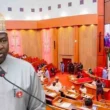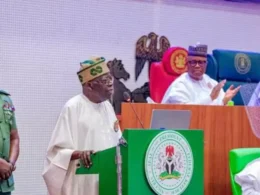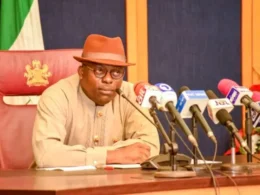By IDMO
The old Rivers Province at some point in time was administered as Degema Division. The Division consisted of Degema and Ahoada Districts. Ahoada became a Division in 1923. Around 1927, Ahoada Division encompassed the upland Native Court Areas, namely; Isoba (now Choba), Mboli (now Eleme), Umukoroshe (Rumuokurusi), Nkarahia (Isiokpo), Rumuji, Elele, Okomoko and Umuaturu in addition to Abua, Ekpeye, Ogba, Egbema and parts of Engenni. Diobu (Port Harcourt) were then in the Rumuokwurusi Native Court Area.
In April 1931, Diobu (Port Harcourt) was moved to become part of the Obio Native Court Area when it was established to replace Rumuokwurusi Court. Thus even as early as that time (1931) of the history of Port Harcourt City, Okrika and Diobu were not in the same Administrative Division. Evidence of the separation of Okrika from Port Harcourt is further outlined in the 1949 Government Notice No. 1577 pursuant to Section 5(2) of the Nigeria (Protectorate and Cameroons) Order-in-Council 1946. That was the instrument by which Port Harcourt was elevated from being a town council under Ahoada Division to become an autonomous Colonial Administrative Division. The Command of the Governor-General signed by the Chief Secretary to the Government, Mr H.M. Foot, in Lagos on 18th November 1949 proclaimed the boundaries of Port Harcourt Division thus;
“That part of Ahoada Division which includes the Township of Port Harcourt and the Crown Lands adjacent thereto, shall be constituted as an Administrative Division of the Rivers Province, to be known as the Port Harcourt Division. The boundaries of Port Harcourt Division shall be those described in the First Schedule to the Proclamation.”
No mention of Okrika is made in the proclamation and its accompanying schedule because Okrika was not part of Port Harcourt Division. It is a matter of fact that Okrika was part and parcel of Degema Division all through the colonial period and until the Local Government Review of 1976 under the chairmanship of Ibrahim Dasuki. From then, Okrika, Oyibo, Tai and Eleme were constituted into one Local Government Area known as Okrika/Oyibo/Tai/Eleme Local Government Area.
In 1977 some persons of Okrika extraction were emboldened by the fact that the then Attorney-General of Rivers State and also the Permanent Secretary in charge of the Ministry of Lands were both individuals from Okrika, to approach the Court to seek Court Declaration that the 1913 Agreement was valid and subsisting. They also wanted the Court’s declaration that they could re-negotiate with the Government in view of the fact that the Diobu people had by the 1928 Agreement varied the terms of the 1913 Agreement as it affected their own lands.
Armed with that misrepresentation of judgment of Hon Justice Okara, those Okrika people showed up for payment of arrears based on the 1928 Agreement between Diobu and the Colonial Government. Fortunately, at that point in time, both the Okrika Attorney-General and Permanent Secretary for Lands were no longer in those positions. Besides, a new administration led by another military officer demanded the Okrika chiefs satisfy the stipulations contained in the ruling of the Honourable Court.
The chiefs from Okrika who asked to be paid for Port Harcourt Crown Land acquired by the Colonial Government could not show their area of the land. They could not forge it. They therefore abandoned that pursuit in 1978 until 1983 during the administration of an Ogbia-Ijaw man, Chief Melford Okilo, and with an Okrika Secretary to Government, Chief Rufus Ada-George, who fraudulently paid them arrears for their purported land in respect of 1928 Agreement with no survey plan and no documents as to the area of Port Harcourt Crown Land the payment covered.
Iwhnurohna (Ikwerre) people are one of the most hospitable ethnic groups in the World. Our generosity shall not kill us; rather it shall help us to live excellently well forever. Amen.
Beyond reasonable doubt Rebisi-Ikwerre people own the whole land upon which Port Harcourt City exists.
Port Harcourt Crown Land acquired under the 1913 and 1928 Agreements was the farmlands of the Diobu people (also referred to as Rebisi Kingdom).
According to Sir Fredrick D. Lugard, “The occupiers belong to a single village named DIOBU,” and he recognized the settlement of Okrika people on the other side of the creek but NEVER mention them as either sole or co-owners as well as the fact that Chief Daniel Oju Kalio of Okrika “had quite forthrightly earlier on enlightened the colonial officers that the area belonged to a people who referred to themselves as Diobu, were all absolutely correct.
Some Okrika persons are busy grabbing lands in Port Harcourt under false claim of joint ownership with the Rebisi-Ikwerre. As a Crown Land, the Rivers State government has a duty to stop them and protect the land.
For over 108 years (1913-2921) since the land was acquired till date, no Okrika person has been elected as Mayor of Port Harcourt. This means that Okrika has no ownership stake in Port Harcourt, and have only been attempting to manufacture such in recent times.
Rivers State Government holds the Crown Land acquired from Diobu in Port Harcourt in trust for public use but the Okilo and Ada George’s Administrations aided and abetted the Okrika false claims, brazen land grab, without a forthright resistance or reprisal.
Between 1982 and now, some Okrika people have encroached upon lands reclaimed with Rivers State Government’s funds for public use in Borokiri, establishing settlements and illegally giving them names completely strange and ascribing indigenous status to them. Other people from Rivers State and elsewhere who were allotted plots in the planned layout lost their allocations as a result of the land grab. The same thing happened at the Reclamation Layout in the early to mid-1990s in violation of the plans of Government for those areas. Not even the Port Harcourt Cemetery is spared the rabid encroachment and irredentism.
Some elements of Okrika go as far as selling land in Port Harcourt Crown Land as well as Trans-Amadi Industrial Layout acquired from Diobu people in late 1950s by the defunct Eastern Regional Government of Nigeria with spurious titles clearly putting those to whom they sell the grabbed land at risk of losing their investments should the Government of Rivers State wake up from its deep slumber to protect what is in its care for public interest. This is most grievously unacceptable and grave injustice.
By criminal negligence, the then Attorney-General and Permanent Secretary Ministry of Lands refused to defend the Rivers State Government against the fraudulent claim by some elements from Okrika to arrears for the Crown Land accruing from the 1928 Agreement.
Beyond reasonable doubt, in further criminal negligence, illegal signposts bearing strange names proclaiming new communities and chiefdoms in Port Harcourt City and the installation of chiefs and paramount ruler by Okrika elements since 1982 has been unwittingly accommodated by the Government of Rivers State.
Beyond reasonable doubt, it is very convincingly evident from the narrative above that there was an official complicity between the Rivers State Government and some Okrika people to defraud Rebisi-Ikwerre people of their land. This makes the Government also liable for the injustice.
Beyond reasonable doubt, today, in brazen fraud, the self-styled Port Harcourt Aborigines Wakirike led by Mr Derrick Acheseomie, who has already illegally installed himself the Obumuton of Port Harcourt South on 17th November 2017, seeks to rule over the area from the Bonny River/Primrose Creek behind Government Comprehensive Secondary School Borokiri, Port Harcourt to old Port Harcourt Township, which were all shown on the survey plan attached to the 1913 Agreement as Diobu farms within the Port Harcourt Crown Land acquired from Diobu Chiefs in 1913 and 1928 Agreements. The Rivers State Government need to stop this and such others in the future.
The IDMO wish to state that the ultimate goal of this publication is not to chase away or discourage anybody from living in Port Harcourt; but to bring to the attention of the whole world, Nigeria and Rivers State Government in particular that the claims by some Okrika persons with respect to the ownership of Port Harcourt is historically and legally false.









